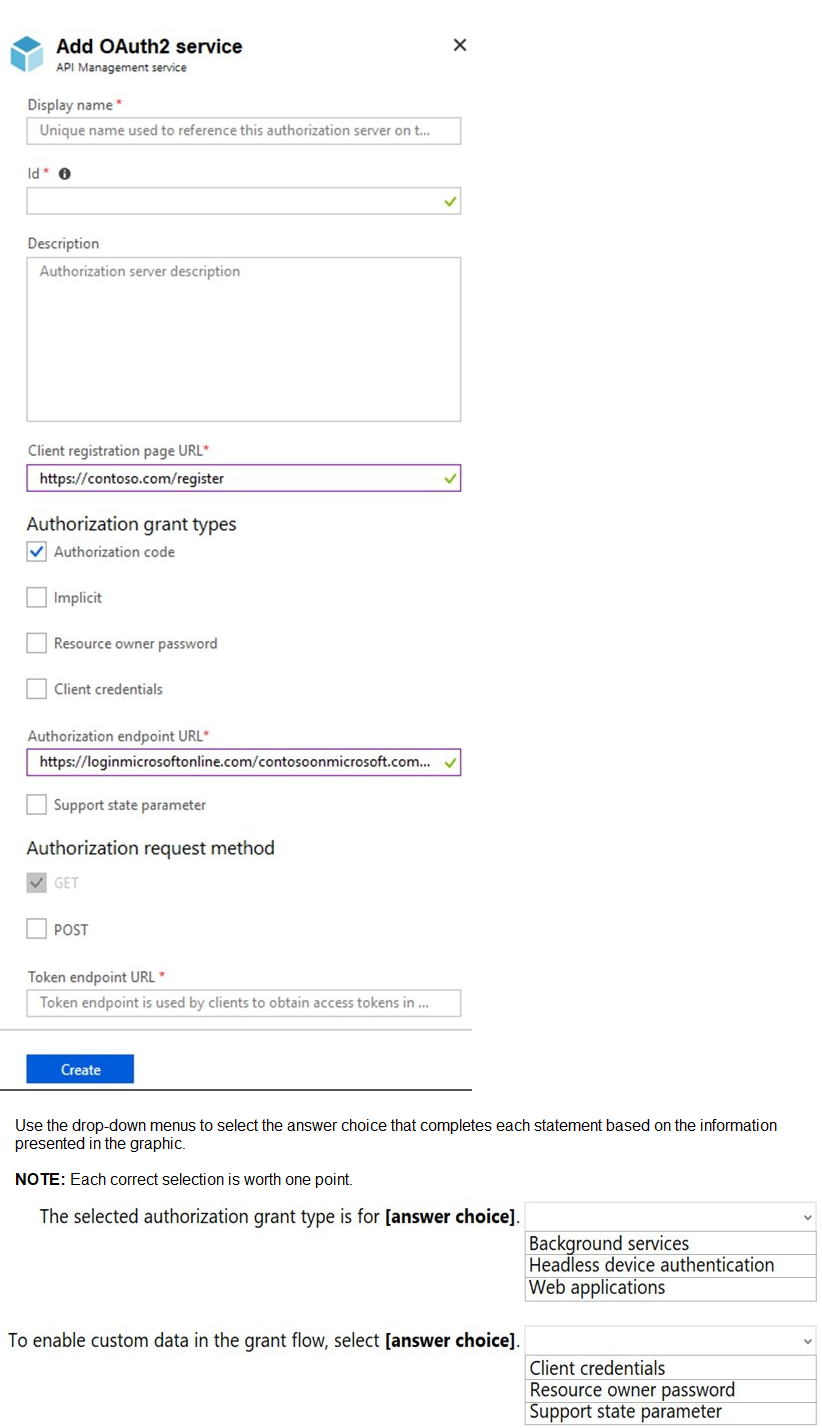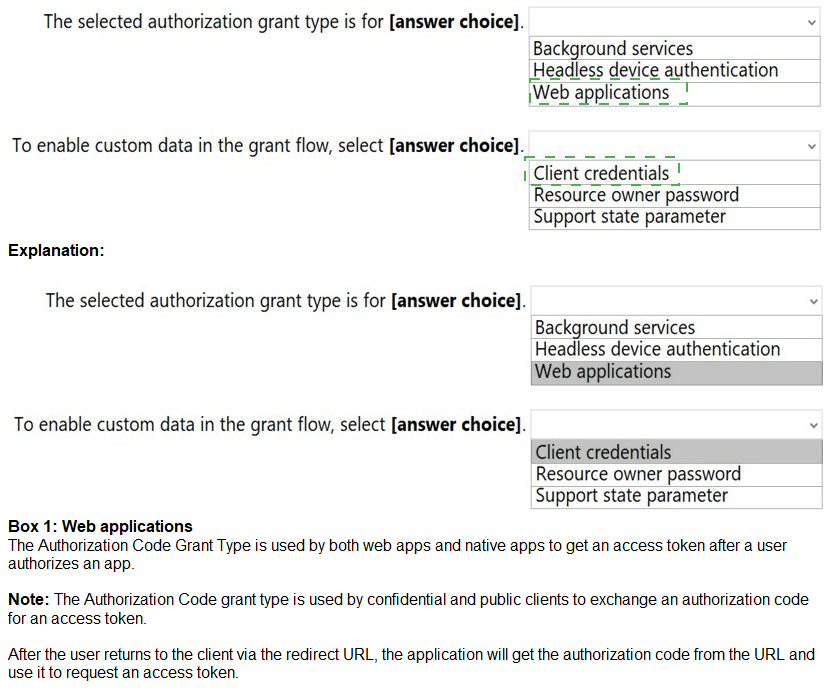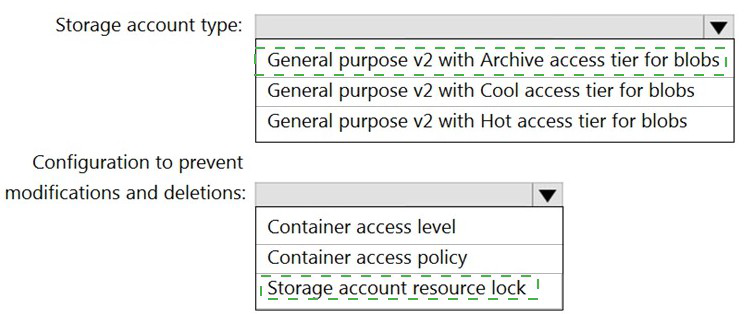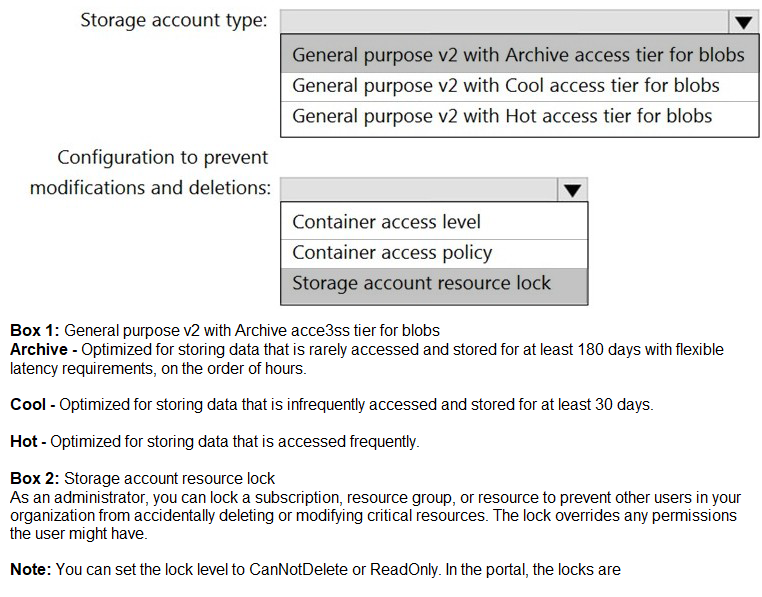
- Email support@dumps4free.com

Topic 5: Misc. Questions
You configure OAuth2 authorization in API Management as shown in the following exhibit.


You are planning an Azure Storage solution for sensitive data. The data will be accessed daily. The data set is less than 10 GB.
You need to recommend a storage solution that meets the following requirements:
• All the data written to storage must be retained for five years.
• Once the data is written, the data can only be read. Modifications and deletion must be prevented.
• After five years, the data can be deleted, but never modified.
• Data access charges must be minimized
What should you recommend? To answer, select the appropriate options in the answer area.
NOTE: Each correct selection is worth one point.


Note: This question is part of a series of questions that present the same scenario.
Each question in the series contains a unique solution that might meet the stated goals. Some question sets might have more than one correct solution, while others might not have a correct solution. After you answer a question in this section, you will NOT be able to return to it. As a result, these questions will not appear in the review screen. Your company deploys several virtual machines on-premises and to Azure. ExpressRoute is being deployed and configured for on-premises to Azure connectivity. Several virtual machines exhibit network connectivity issues. You need to analyze the network traffic to identify whether packets are being allowed or denied to the virtual machines.
Solution: Use Azure Traffic Analytics in Azure Network Watcher to analyze the network traffic.
Does this meet the goal?
A.
Yes
B.
No
No
Explanation:
Instead use Azure Network Watcher IP Flow Verify, which allows you to detect traffic filtering issues at a VM level.
Note: IP flow verify checks if a packet is allowed or denied to or from a virtual machine. The information consists of direction, protocol, local IP, remote IP, local port, and remote port. If the packet is denied by a security group, the name of the rule that denied the packet is returned. While any source or destination IP can be chosen, IP flow verify helps administrators quickly diagnose connectivity issues from or to the internet and from or to the on-premises environment.
Reference:
https://docs.microsoft.com/en-us/azure/network-watcher/network-watcher-ip-flow-verifyoverview
https://docs.microsoft.com/en-us/azure/network-watcher/traffic-analytics
You have an Azure subscription that contains an Azure SQL database.
You plan to use Azure reservations on the Azure SQL database.
To which resource type will the reservation discount be applied?
A.
vCore compute
B.
DTU compute
C.
Storage
D.
License
vCore compute
Explanation:
Quantity: The amount of compute resources being purchased within the capacity reservation. The quantity is a number of vCores in the selected Azure region and Performance tier that are being reserved and will get the billing discount. For example, if you run or plan to run multiple databases with the total compute capacity of Gen5 16 vCores in the East US region, then you would specify the quantity as 16 to maximize the benefit for all the databases.
Reference:
https://docs.microsoft.com/en-us/azure/azure-sql/database/reserved-capacity-overview
You have an Azure virtual machine named VM1 that runs Windows Server 2019 and contains 500 GB of data files. You are designing a solution that will use Azure Data Factory to transform the data files, and then load the files to Azure Data Lake Storage. What should you deploy on VM1 to support the design?
A.
the self-hosted integration runtime
B.
the Azure Pipelines agent
C.
the On-premises data gateway
D.
the Azure File Sync agent
the self-hosted integration runtime
| Page 1 out of 56 Pages |